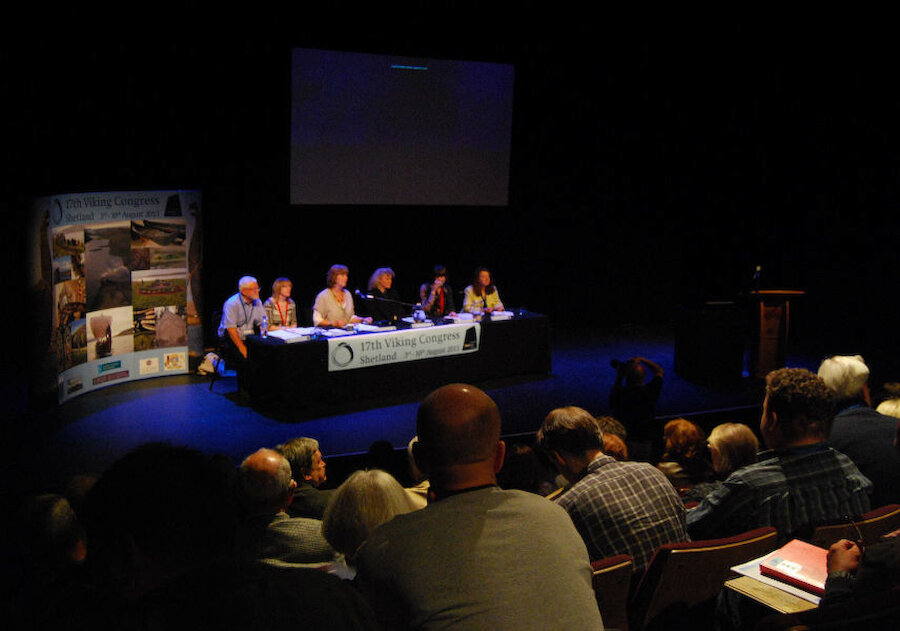A gathering of specialists in Viking and Norse history has returned to Shetland for the first time since the inaugural Viking Congress was held in the islands in 1950.
In the decades following the original Shetland event, the congress – which tends to meet every three to four years - visited many parts of the former Norse world.
The Viking Congresses are multinational, interdisciplinary conferences. They create a common forum for the sharing of current research and theory, building links between leading scholars across geographical and disciplinary borders. Those gathered in Lerwick included archaeologists, historians, geographers and those with special interests in a wide range of topics including place-names, coinage and runes.
There were many fascinating insights into, for example, the way in which Viking settlement could be traced through analysis of plant pollen or the ways in which wealth was held in Viking times. Unsurprisingly, some of the talks focused on Shetland's Viking past and there were excellent accounts of recent archaeological work.
The Shetland congress broke with convention by enabling the general public to attend one day of talks; however, anyone with an interest was able to see and hear all the conference sessions, which were streamed live on the internet by Promote Shetland.
In order to accommodate the congress, the organisers used both Mareel, the islands" new arts centre, and the adjacent Shetland Museum and Archives. Mareel was also hosting parts of the Fiddle Frenzy event, which meant that some smart scene-shifting was necessary in the auditorium at the end of each day of the congress. The arrangements worked extremely well and the experience bodes well for future, similar events.

